
How Coffee Brings People Together Across Continents
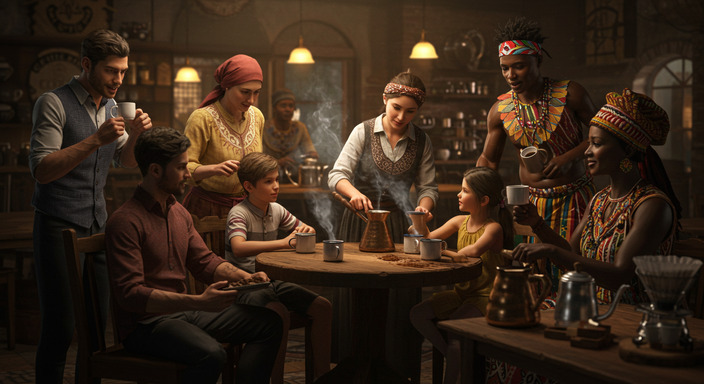
Table of Contents
ToggleAcross the globe, coffee is much more than a beverage. It’s a bridge between people, a catalyst for conversation, and a symbol of hospitality. Whether sipped in the quiet mornings of an Italian café, shared in the lively markets of Ethiopia, or offered during business meetings in Brazil, coffee plays a powerful role in bringing people together.
In this article, we’ll explore how coffee transcends borders, cultures, and languages to become a universal connector, uniting people from all walks of life.
A Shared Ritual, A Shared Language
Coffee is one of the few daily rituals that is truly global. While the methods of preparation and traditions vary, the act of sharing coffee carries a universal message: you are welcome here.
In many countries, offering a cup of coffee is a sign of respect, friendship, or peace. It’s a way to slow down, to acknowledge the person across the table, and to create space for connection.
“Coffee is the most human drink. It invites eye contact, conversation, and reflection.” – Jonathan Morris, coffee historian
Ethiopia: The Birthplace of Coffee and the Ceremony of Connection
Coffee originated in Ethiopia, and to this day, coffee ceremonies are at the heart of Ethiopian social life. This ritual can last hours and includes roasting green beans, grinding them by hand, and brewing the coffee slowly in a jebena (a clay pot).
The ceremony isn’t just about drinking—it’s about community. Family, friends, and neighbors gather, talk, laugh, and connect. It’s a daily practice of bonding, especially in rural areas.
Serving three rounds of coffee—abol, tona, and baraka—symbolizes spiritual connection, respect, and blessing. Each round deepens the bond between the participants.
Italy: The Espresso Culture of Connection
In Italy, the coffee bar is a cultural institution. Italians rarely drink coffee alone at home—they prefer to stand at the bar, sip an espresso, and chat with the barista or other customers. It’s a moment of pause built into the day.
More than 95% of Italians drink coffee daily, and the café is a place of familiarity, where people from all walks of life come together. From early morning to late afternoon, these tiny rituals anchor social life.
“In Rome or Milan, you might not know a person’s name, but you know their coffee order. That’s connection.” – Giulia Mancini, Italian barista
Turkey: Coffee as Ceremony and Conversation
In Turkish culture, coffee (Türk kahvesi) is a symbol of hospitality, respect, and tradition. It is served during family gatherings, social visits, and even during important moments like marriage proposals.
There’s an old Turkish saying: “A cup of coffee commits one to forty years of friendship.” The implication is simple yet profound—sharing coffee creates lasting human bonds.
Turkish coffee is often served with sweets and water, encouraging guests to stay longer and engage in conversation. After drinking, fortune-telling from coffee grounds adds a playful, mystical element that sparks connection and storytelling.
South America: Coffee in Everyday Life
In countries like Colombia, Brazil, and Peru, coffee is grown, brewed, and consumed not just as a drink, but as a way of life. In Brazil, offering a cafézinho (a small, sweet coffee) is almost an automatic gesture when guests arrive. In Colombia, sharing a tinto is part of daily routine and hospitality.
In these communities, coffee is about togetherness—it’s how families reconnect after work, how neighbors chat during the day, and how communities celebrate the harvest. It is both cultural and deeply personal.
Here’s a comparison table of coffee-sharing traditions around the world:
| Country | Coffee Type | Social Context | Symbolism |
|---|---|---|---|
| Ethiopia | Coffee ceremony | Family and neighbor gatherings | Hospitality, spirituality |
| Italy | Espresso | Daily café visits | Community, routine |
| Turkey | Turkish coffee | Social rituals, marriage, storytelling | Respect, tradition, connection |
| Brazil | Cafézinho | Welcoming guests, breaks during the day | Warmth, generosity |
| Japan | Slow-drip coffee | Modern coffee houses and cafés | Mindfulness, modern bonding |
Modern Cafés: A New Global Coffee Culture
Today, coffee shops serve as modern third spaces—not home, not work, but somewhere in between. In cities like New York, Tokyo, Berlin, or Cape Town, people gather in cafés to study, meet, date, or work remotely. Coffee creates the backdrop for human interaction.
These spaces reflect a global culture of connection where people from different backgrounds and beliefs can share the same table. Even if you don’t speak the same language, a shared appreciation for a good cup of coffee opens the door to connection.
“You don’t need a translator to share coffee. You just need time and presence.” – Luis Rojas, café owner in Buenos Aires
Coffee and Conversation: The Psychology of Togetherness
Coffee is often associated with conversation, and for good reason. Studies in social psychology show that warm beverages can actually make people feel more open, trusting, and connected.
That’s why so many important life moments happen over coffee:
- First dates
- Job interviews
- Deep talks between friends
- Family reunions
- Reconciliations
The act of sipping coffee slows us down just enough to open our hearts—and that’s what makes it special. It’s not just about flavor—it’s about what happens around the cup.
Digital Connection Over Coffee
Even in the age of social media and remote work, coffee continues to be a connector. Virtual coffee chats, “Zoom coffee breaks,” and “remote coffee meetups” became a lifeline for human connection during the COVID-19 pandemic.
Coffee became a way to simulate presence across distance. And even today, friends in different countries set up coffee calls to catch up—each with a mug in hand, even if thousands of miles apart.
This global ritual proves that coffee isn’t bound by geography—only by intention.
Coffee in Conflict Zones and Crises
Even in the most difficult circumstances, coffee remains a source of comfort and human dignity. In refugee camps or war zones, sharing coffee can provide a rare moment of peace. It creates a feeling of normalcy, safety, and togetherness when everything else feels unstable.
In many parts of the Middle East and North Africa, displaced families still carry small coffee pots and cups with them. Brewing and sharing coffee is their way of preserving identity and community amidst loss.
This simple act becomes a quiet resistance to despair—and a celebration of culture.
A Cup That Unites the World
Across borders, languages, and histories, coffee has proven itself to be one of the most powerful social bridges. Whether it’s shared between strangers, neighbors, friends, or generations, it fosters presence, storytelling, and connection.
It invites us to listen, to share, and to be fully human.
Perhaps this is the true magic of coffee: not in the caffeine, but in the way it brings hearts closer, one sip at a time.
is a writer and editor at Coffee With Finance, blending her love for coffee, personal finance, and visual storytelling. She crafts engaging articles, curates site images, and shares brewing tips, bean origins, and practical money advice. Anna believes that managing finances, like making great coffee, should be intentional and rewarding — bringing clarity, warmth, and beauty to every story she tells.















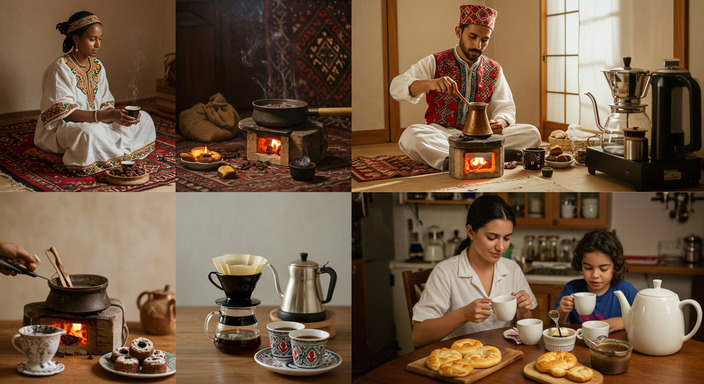
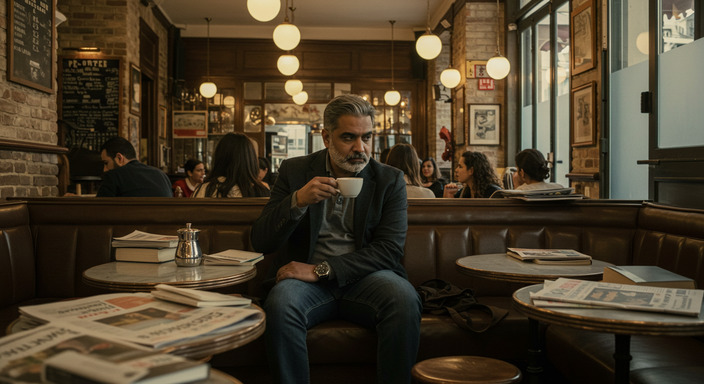
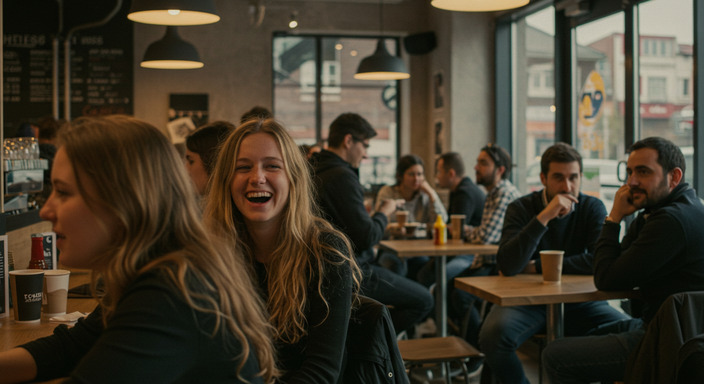
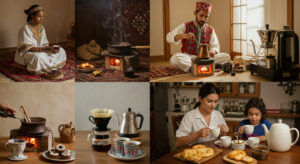



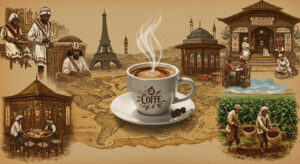





Post Comment